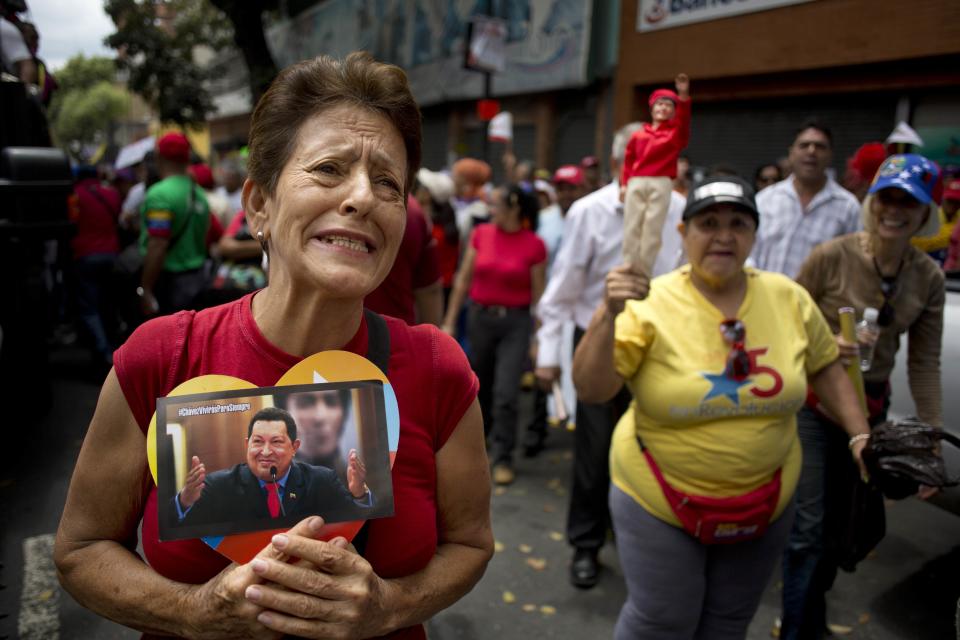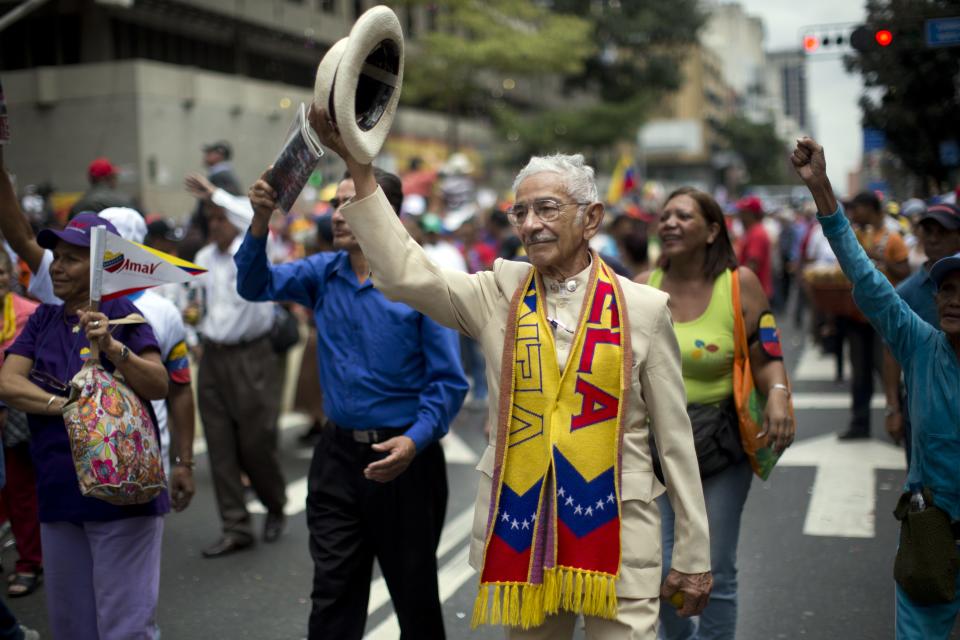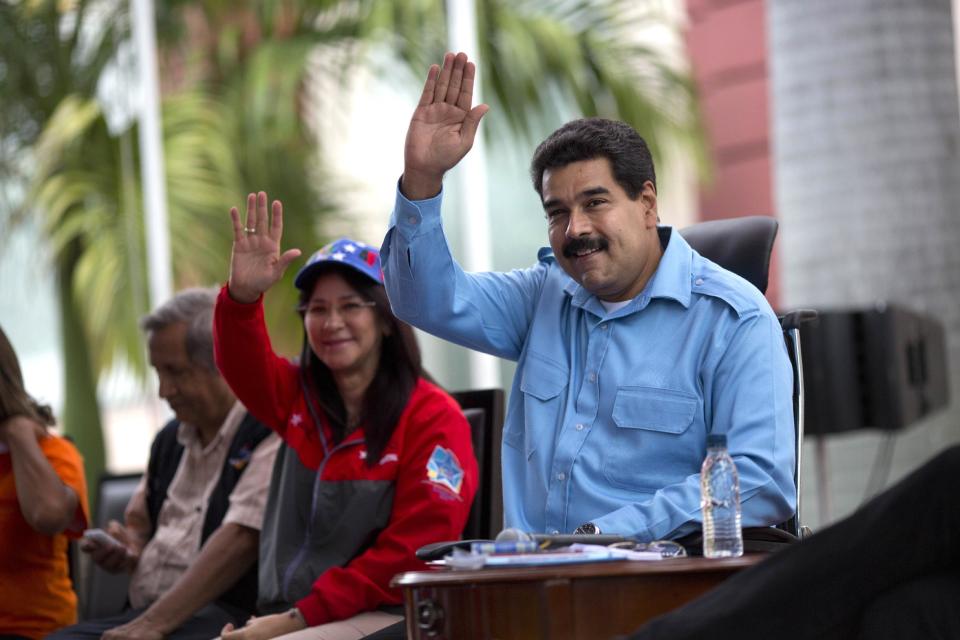Ex-Venezuelan general in armed standoff at home
CARACAS, Venezuela (AP) — One of Venezuelan President Nicolas Maduro's most outspoken critics has become the latest rally cry for opposition protesters after engaging in an armed standoff with security forces Sunday.
Retired army Gen. Angel Vivas sported a flak jacket, assault rifle and handgun as he defiantly addressed dozens of neighbors from the balcony of his home in eastern Caracas.
"I'm not going to surrender," the 57-year-old Vivas yelled to a crowd of cheering followers.
Supporters rushed to Vivas' defense after he announced to his 100,000-plus followers on Twitter that a group of "Cuban and Venezuelan henchmen" had come looking for him. The officers withdrew after the crowd built barricades outside Vivas' house. Vivas' lawyer said they didn't have an arrest order.
Maduro on Saturday ordered Vivas' arrest for allegedly encouraging students to stretch wire across streets where they've set up barricades in recent weeks. The president blames the apparent booby trap for the death of a government supporter who raced into a barricade on a motorcycle.
Vivas, one of the government's fiercest critics in the frequently vicious world of Venezuelan social media, rose to prominence in 2007 when he resigned as head of the Defense Ministry's engineering department rather than order his subalterns to swear to the Cuban-inspired oath "Fatherland, socialism or death."
The standoff Sunday occurred after hundreds of grandparents danced and paraded their way to the presidential palace to express support for Maduro, who is struggling to contain a wave of anti-government protests that have left at least 10 people dead and more than 100 injured.
Speaking at the rally, Maduro invited sectors of the opposition as well religious and labor leaders to participate in a meeting Wednesday to discuss ways to restore calm in Venezuela.
He also said hoped that the opposition's two-time presidential candidate, Henrique Capriles, governor of Miranda state, attends a meeting Monday with local authorities to discuss ways to reduce crime, one of the main drivers of the protests.






